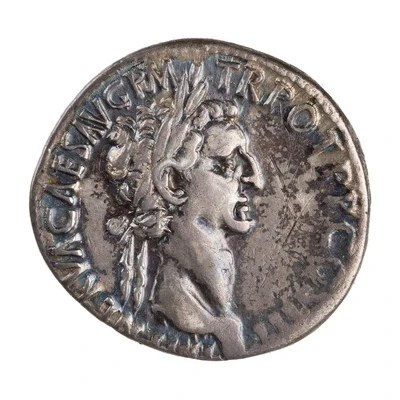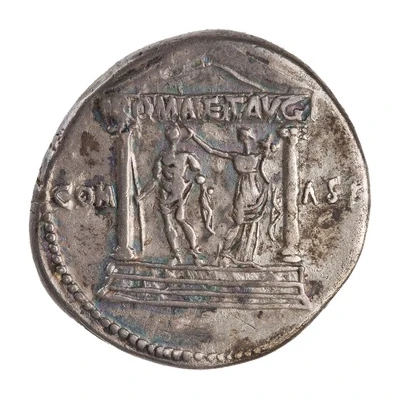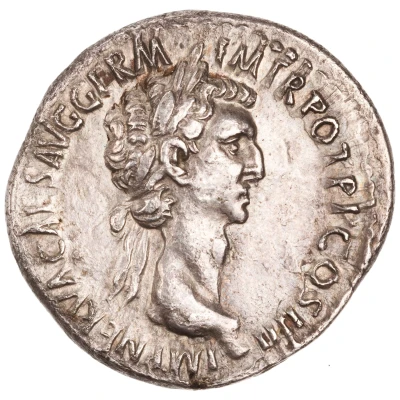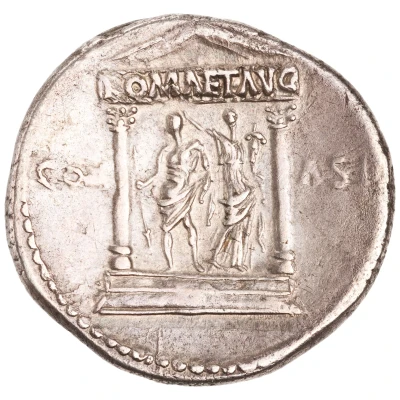


© American Numismatic Society (ANS)
Cistophorus - Nerva COM ASI
98 year| Silver | 10.2 g | 26 mm |
| Issuer | Rome › Roman Empire (27 BC - 395 AD) |
|---|---|
| Emperor | Nerva (Marcus Cocceius Nerva) (96-98) |
| Type | Standard circulation coin |
| Year | 98 |
| Value | Cistophorus = 3 Drachms = 3 Denarii |
| Currency | Denarius, Reform of Augustus (27 BC – AD 215) |
| Composition | Silver |
| Weight | 10.2 g |
| Diameter | 26 mm |
| Shape | Round (irregular) |
| Technique | Hammered |
| Orientation | Variable alignment ↺ |
| Demonetized | Yes |
| Updated | 2024-10-05 |
| Numista | N#252562 |
|---|---|
| Rarity index | 100% |
Reverse
Temple of Roma and Augustus, within which is Nerva on left being crowned with wreath by a woman holding a cornucopiae (Fortuna?); frieze inscribed ROM ET AVG.
Script: Latin
Lettering: COM ASI
Translation:
Comunitas Asiae.
Community of Asia.
Comment
Mass varies: 10–10.63 g;Diameter varies: 25–27 mm;
Source: Online Coins of the Roman Empire (OCRE)
Interesting fact
The Cistophorus - Nerva coin was minted during the reign of Emperor Nerva (96-98 AD), who was known for his efforts to reform the Roman Empire's currency and monetary system. The coin's design features a depiction of the goddess Roma on the obverse (front side), and a representation of the Roman Empire's coat of arms on the reverse (back side). The use of silver in the coin's composition was a significant departure from the previous bronze coins, and it marked a shift towards a more valuable and durable currency. This change in currency composition was a result of Nerva's monetary reforms, which aimed to stabilize the Roman economy and restore confidence in the empire's currency.

